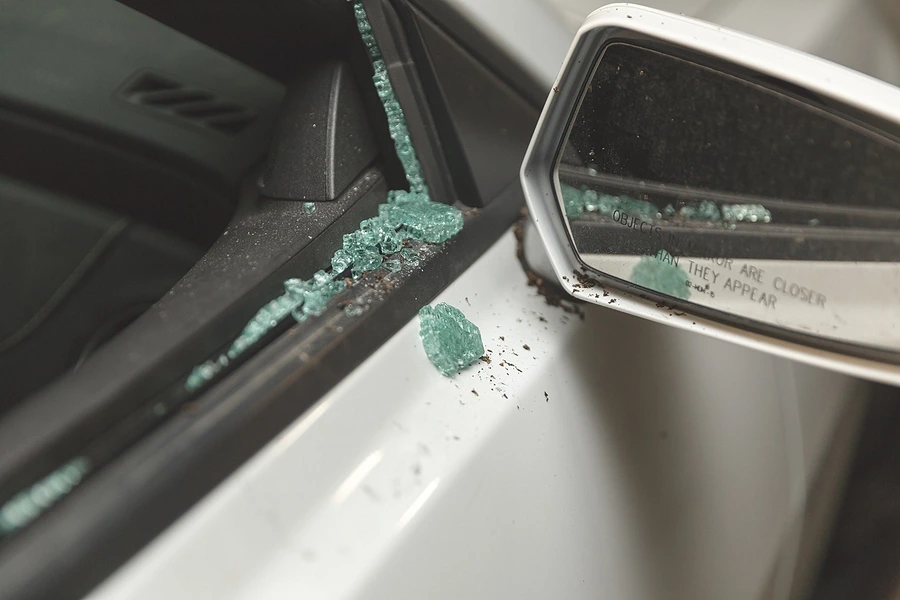What Passengers Should Know About Their Legal Rights After a Car Accident

If you’ve been injured as a passenger in a car accident, it can be confusing to know what your rights are. Unlike drivers, passengers often have less control over the circumstances of a crash, yet they still have the right to seek compensation for their injuries. Understanding these rights is essential if you find yourself in this unfortunate situation.
In Florida, like in other states, passengers involved in road accidents have legal options to pursue compensation for their injuries. This compensation can cover medical bills, lost wages, pain and suffering, and other damages. However, the process can be complicated, and knowing how to navigate it can help protect your rights.
Who Is Liable in a Car Accident Involving a Passenger?
One of the first questions a passenger may have after an accident is who is responsible for their injuries. In Florida, fault for an accident is typically determined by identifying who was negligent in causing the crash. Depending on the specifics of the situation, fault can lie with:
-
The Driver of the Vehicle You Were In
If the driver of the car you were a passenger in caused the accident, they may be held liable. This is often the case if the driver was negligent, distracted, or made a traffic violation that led to the crash. -
The Other Driver Involved
In some cases, the driver of another vehicle may be at fault. If the other driver was speeding, ran a red light, or engaged in other negligent behavior, they could be liable for your injuries. This may be the case even if you were a passenger in a car driven by a responsible driver. -
Both Drivers
In many accidents, liability is shared between both parties. For example, if the driver of the car you were in was partially at fault, but the other driver was also negligent, you may be able to pursue a claim against both parties. -
Third Parties
Sometimes, liability may also extend to other entities, such as vehicle manufacturers, for defects or poor vehicle maintenance. In these cases, the manufacturer may be held responsible if a vehicle malfunction or design flaw contributed to the accident.
Filing an Insurance Claim as a Passenger
As a passenger, you do not need to rely on the driver’s insurance to cover your injuries. There are multiple avenues to pursue compensation:
-
The At-Fault Driver’s Insurance
If the other driver is determined to be at fault for the accident, you can file a claim with their insurance company. This is often done through the at-fault driver’s liability coverage. If you were injured due to their negligence, their policy should cover your medical expenses and other damages. -
The Driver’s Insurance (If They Are at Fault)
If the driver of the vehicle you were in caused the accident, you can file a claim with their insurance. If the driver is insured, their personal injury protection (PIP) coverage or liability insurance should be used to cover your medical expenses. Keep in mind that Florida follows a no-fault system for insurance, which means each driver’s own PIP insurance is responsible for their medical bills, regardless of fault. As a passenger, you would file a claim with the driver’s PIP insurance if they caused the accident. -
Your Own Insurance
If neither driver is found to be at fault, or if you are unable to recover damages from the other drivers’ insurance, your own insurance policy may cover some of the costs. Under Florida’s PIP system, if you have car insurance, your own PIP insurance may provide compensation for medical bills and lost wages. -
Uninsured/Underinsured Motorist Coverage
If the at-fault driver doesn’t have enough insurance (or no insurance at all), you may be able to make a claim through your own uninsured or underinsured motorist coverage, if you have it. This type of coverage can help fill in the gap if the at-fault driver’s insurance is insufficient to cover your expenses.
What Types of Damages Can Passengers Claim?
As a passenger in a car accident, you are entitled to pursue compensation for a range of damages, similar to a driver. These include:
-
Medical Expenses: This covers immediate hospital bills, emergency care, surgeries, medications, physical therapy, and any ongoing medical treatment necessary as a result of the accident.
-
Lost Wages: If your injuries prevent you from working, you can seek compensation for lost income.
-
Pain and Suffering: This refers to the physical and emotional distress caused by your injuries. It may cover both short-term pain and the long-term effects of your injuries.
-
Loss of Enjoyment: If the injury impacts your ability to participate in daily activities or hobbies, you can claim damages for loss of enjoyment of life.
-
Property Damage: If any of your personal property was damaged in the accident, such as a phone, tablet, or other items, you can pursue compensation for that as well.
What If the Accident Was Caused by a Driver You Know?
In some cases, the driver at fault might be someone you know, such as a friend, family member, or colleague. While this can complicate matters emotionally, it does not affect your ability to pursue a claim. In Florida, insurance coverage, not personal relationships, determines liability in these situations.
If the driver is a family member or close friend, it’s important to remember that their insurance company will handle the claim, not the individual themselves. This means you won’t need to directly sue the driver but will go through the insurance process instead.
How Comparative Fault Affects Passengers’ Claims
In Florida, the state follows a comparative fault rule. This means that if you are found partially at fault for the accident, your compensation could be reduced based on the percentage of your fault. For example, if you were not wearing your seatbelt and this contributed to the severity of your injuries, your compensation might be reduced.
As a passenger, you may not be at fault at all, but it’s important to understand that the insurance companies will thoroughly investigate the accident. If they find any reason to assign partial fault to you, it could affect the total damages you are awarded.
Statute of Limitations in Florida
Florida law gives you a limited time to file a personal injury claim following a car accident. In most cases, the statute of limitations is two years from the date of the accident. This means that you must file your lawsuit within four years, or you could lose your right to seek compensation. However, there are exceptions, such as in cases of injuries that were not immediately apparent. Consulting with an attorney promptly after an accident can help ensure you meet all necessary deadlines.
Why You Should Consult an Attorney
Navigating a personal injury claim as a passenger can be challenging, especially when dealing with insurance companies or multiple liable parties. Working with an experienced personal injury lawyer can help ensure that your rights are protected, and that you receive fair compensation for your injuries.
An attorney can assist in gathering evidence, negotiating with insurance companies, and representing you in court if necessary. They will work to ensure you don’t settle for less than what you deserve.
Conclusion
Injuries suffered as a passenger in a car accident can have significant physical, emotional, and financial consequences. However, you have the legal right to pursue compensation for your damages. By understanding your rights and the process of filing a claim, you can take the necessary steps to protect yourself and receive the compensation you deserve.
If you’ve been injured as a passenger in a car accident, it’s important to consult with a knowledgeable personal injury lawyer who can guide you through the process and help you navigate the complexities of insurance claims and legal proceedings.
John Pape is the Managing Partner at Weston & Pape and has more than 30 years of experience representing injured clients across Florida. A summa cum laude graduate of the University of Miami School of Law, he has devoted his entire career to personal injury cases, including motor-vehicle accidents, wrongful death, and nursing-home neglect. Recognized by Verdict7, The National Trial Lawyers Top 100, and Premier Lawyers of America, John is known for his thorough preparation and commitment to achieving meaningful results for his clients.

 Call Us Today - It's Free
Call Us Today - It's Free